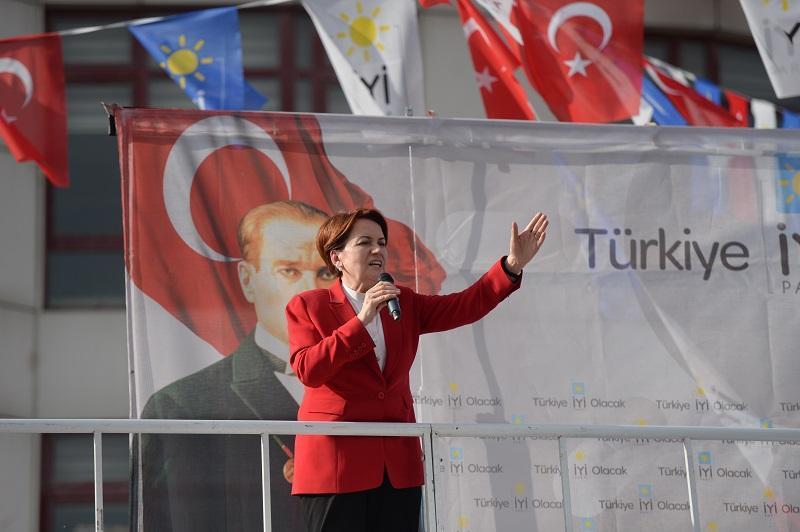
İYİ (Good) Party leader and presidential candidate Meral Akşener called on all parties in the opposition “Nation Alliance” to meet in order to define a roadmap for a “return to the parliamentary system” after the June 24 snap elections.
“In order to pass back to the parliamentary system in a healthy and fast way, we should ensure the preparation of a roadmap before June 24,” Akşener said in an interview on a radio station on May 31.
Three opposition parties - the Republican People’s Party (CHP), the Felicity Party (SP) and the İYİ Party - formed an alliance for the upcoming June 24 parliamentary elections, against the “People’s Alliance” formed by the ruling Justice and Development Party (AKP) and the Nationalist Movement Party (MHP).
The parties in the “Nation Alliance” all opposed the constitutional amendment that stipulates extensive changes in Turkey’s executive system, granting sweeping powers to the president-elect. They propose a “return to the parliamentary system” after the election in the event if they win a majority in the parliament or their candidate takes the presidential post.
The alliances were announced after a legislative change approved in March that paved a way for political parties to form pre-election alliances, tackling a problem of 10 percent electoral threshold for the parties under the alliance.
Speaking in a televised interview with private broadcaster Cem TV early on May 31, Akşener said she believed the three party’s alliance will gain the majority of the votes in the elections.
“In my opinion, the alliance should continue after the election,” Akşener told private broadcaster Cem TV on May 31.
As a former member of the Nationalist Movement Party (MHP), Akşener described the process of the İYİ Party’s formation as a “necessity,” saying developments after July 15 and the constitutional amendment referendum paved the way for it.
“In the referendum I campaigned for ‘no.’ If an honorable ‘no’ had emerged from the ballot box I would have returned home [to the MHP] but the result was both ‘no’ and ‘yes.’ Following the referendum, I was asked to form a party. And we formed the İYİ Party,” she said.
Akşener also repeated the opposition’s objection to the referendum, citing a range of voting irregularities that were not even formally investigated after polling day.
“The İYİ Party was not formed as part of the MHP. We did what Mr. Tayyip [Erdoğan] tried to do in 2001 [in separating from Welfare Party and forming ruling Justice and Development Party]. The April referendum had a big effect on me,” she said.
Akşener stressed that Turkey’s “priorities” are more important than “ideologies,” blasting the current government as “a tired driver.”
“This driver is both very tired and very talkative,” she said.